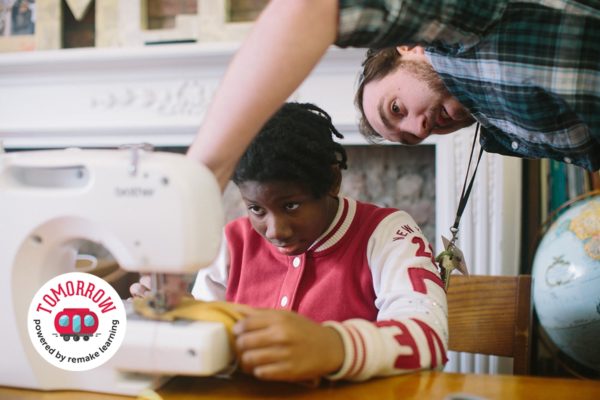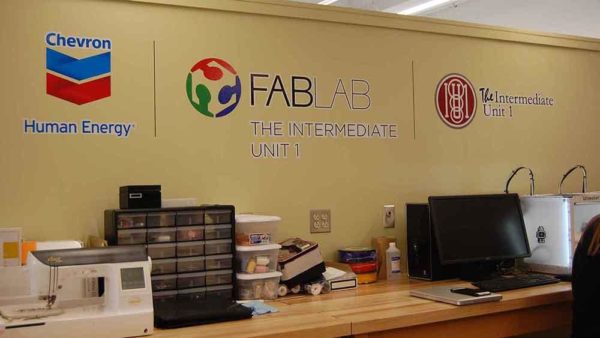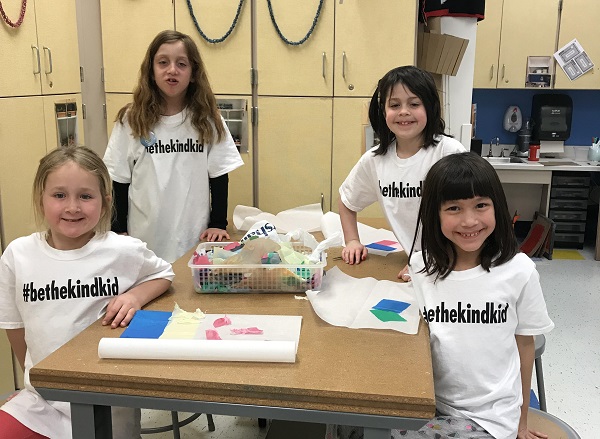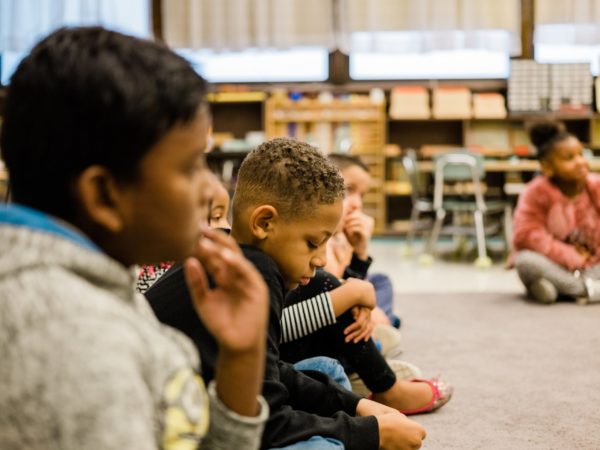
JAM clubs, Fab Labs and more: How innovative programs are teaching the skills every child needs
By Melissa Rayworth
Whether you teach children or you’re raising them, you’ve probably heard the question: How exactly will the things I’m learning at school help me when I grow up?
We may not be sure whether they’ll use algebraic equations after graduation or how understanding ancient Egypt will help them navigate the 21st century (though it might). But when it comes to the skills that fall under “social-emotional learning,” the answer is clear.
Everyone needs to set goals and stick with them. Everyone needs to manage their emotions and empathize with others. And no matter what career path a person chooses, everyone needs to work cooperatively, manage conflict and find positive ways to solve problems.
Sometimes called “soft skills,” these social-emotional behaviors are essential underpinnings for a healthy, functional life. And as school districts nationwide have begun acknowledging the importance of these skills, many curriculum options have popped up to help teach them — everything from the face-to-face interaction of the Building Belonging curriculum to an Alexa-enabled digital program called AskMyClass.
Along the way, innovative programs in the Pittsburgh region are helping students build these skills even as they’re busy learning other things.
The IU1 Educational Campus at Colonial serves students in grades 6 through 12 who need alternative education and therapeutic emotional support. Their academic classes at Colonial are paired with daily therapy sessions and other support services to help these students tackle complicated behavioral issues.
But in 2015, the school added something more: They opened the Fab Lab, a tech-filled maker space where students lead their own creative projects. Along with learning skills like 3D printing, they discover how to set and achieve positive goals while managing frustration.
“They’re able to work on projects and make it their own, and do it on their own time,” says Fab Lab coordinator Matthew Weightman, who oversees three stationary labs at the campus and a mobile Fab Lab vehicle. In the labs, he says, students have shown noticeable improvement in getting along with each other and calmly sticking with projects — and in their willingness to open up emotionally with their counselors.
“When they get into that kind of creativity, they let their guard down,” Weightman says. “That’s where you’ll see we’re making some differences.”
Weightman also brings the mobile Fab Lab out to school districts throughout Pittsburgh. He’s seen the maker experience build this same sense of accomplishment and self-worth in students who aren’t receiving special education services.
Though the kids at Colonial often use advanced tech, some projects aren’t digital. Earlier this year, students designed their own coasters using ceramic tiles and Sharpies. And when the COVID-19 quarantine began, they shifted to at-home projects using supplies like plastic pop bottles or paper towel holders.
Even at home, the positive impact of maker work endured. Many students sent photos or videos of projects completed at home, says Jenny Lent, IU1’s director of curriculum and instruction. Students said these projects helped them handle the emotional impact of the pandemic.
“We see some severe cases,” Lent says. “But making in the Fab Lab has changed their behaviors.”
The JAM clubs
Afterschool JAM clubs at many Pittsburgh-area schools also focus on maker projects. Along the way, they promote a wide range of social-emotional skills — from kindness and empathy to project management, collaboration and entrepreneurship.
The original JAM club began when kindergarten students in the Avonworth district wanted to promote kindness at their school. (Read the whole story here.) With help from teacher Maureen Frew, they began producing t-shirts and buttons with the slogan #bethekindkid and giving their proceeds to charity.
It’s been so successful that they now donate supplies and funding to help many other schools start their own JAM clubs and sell their own #bethekindkid products.
Here’s the key: Frew facilitates, but the students participate in everything. When the group became a registered nonprofit, “they sat down and opened a checking account,” Frew says. “They met with the attorneys.”
The students also interviewed potential t-shirt manufacturers, balancing financial concerns with kindness. “They picked a gentleman who was a single father of two taking care of his kids trying to run this business,” Frew says. And when group members suggest a charity to share their profits with, “they have to call the organization. They set up the speaker, the speaker comes in, and then the kids vote on where the money will go.”
Over the past six years, the Avonworth group has grown from two elementary students to nearly 100, with dozens of JAM clubs spreading to school districts throughout the region. In the process, students are gaining solid entrepreneurial skills. But perhaps more important, they’ve also learned to collaborate, solve problems, stick with projects and empathize with others.
Seven of her students have opened their own Etsy shops, Frew says with pride, even though they’re still in elementary school. The best part? Without any prodding from her, they’ve chosen to donate a portion of their personal profits to charity.
Mindful meditation for all
The JAM Clubs and Fab Labs have done amazing things with a relatively small initial investment in materials. But another Pittsburgh program — one that’s helping thousands of students — actually requires no materials at all. It’s been built entirely through the perseverance and problem-solving skills of a teacher named Kathy Flynn-Somerville.
Flynn-Somerville began teaching in the Pittsburgh Public School system in 1992 and has taught every grade, K-12. Back in 2011, she got permission to introduce a few minutes of mindfulness meditation to the students in her own classroom. She showed them how powerful it could be to take just a moment to close their eyes and mentally scan their bodies for tension and stress.
It didn’t take long. It cost nothing and could be done anywhere. When they’d return from lunch or before they’d go to another class, Flynn-Somerville would simply have them breathe deeply and just be with whatever they were feeling. She wasn’t actively teaching them to manage their emotions or get along better with each other. But she knew from studying the neuroscience behind meditation that it could make a huge difference.
Soon, other teachers started to notice: The students who’d learned mindfulness in Flynn-Somerville’s class had become more focused. They had more patience with each other and with themselves.
Today, Flynn-Somerville offers mindfulness training to students and to teachers throughout the district. Many teachers are glad to welcome her into their classrooms, but others are overwhelmed. After two decades of teaching in city schools, she understand exactly what they’re feeling.
But when they say their plates are already too full to teach their students one more thing, she tells them: “This is not another thing on the plate. This is the plate that holds all else. … This is the plate, because we’ve all got to be stable.”
This article is part of a series for ‘Tomorrow’ powered by Remake Learning. From May to October, “Tomorrow” will explore – through virtual events, grantmaking, and storytelling – what we can do today to make tomorrow a more promising place for all learners. Follow along or share your hopes for today’s young people using the hashtag #RemakeTomorrow and tagging @RemakeLearning. Learn more about Remake Learning here. And read more “Tomorrow” articles published on Kidsburgh.


